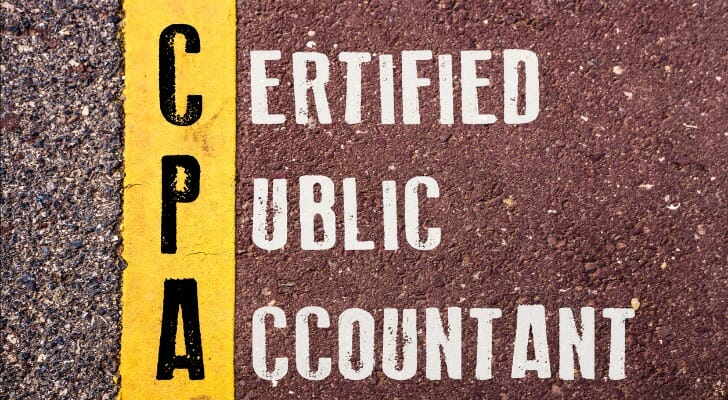 Finding the right financial professional can be a bit of work. Even when you’ve narrowed the focus of precisely what you need, you may still have trouble finding the right expert to help you. When it comes to various accounting experts, you might choose between a certified management accountant (CMA) and a certified public accountant (CPA). Here’s the difference between the two and how to determine which one is right for you.
Finding the right financial professional can be a bit of work. Even when you’ve narrowed the focus of precisely what you need, you may still have trouble finding the right expert to help you. When it comes to various accounting experts, you might choose between a certified management accountant (CMA) and a certified public accountant (CPA). Here’s the difference between the two and how to determine which one is right for you.
Consider working with a financial advisor as you tackle difficult accounting challenges.
What Is a CPA?
A CPA is someone who passed the CPA exam, which made them a licensed public accountant. The exam is administered by the American Institute of Certified Public Accountants (AICPA). Being a licensed public accountant is a requirement for becoming a CPA. They also need to take any state exam or certifications required to be a CPA, since each state requirement is different. Some states require you to hit a specific number of credit hours working in the field before you can take a state exam.
CPAs help individuals and businesses on accounting-related topics, like taxes, audits and regulatory measures.
A CPA isn’t limited to being a public accountant. You might also find CPAs who are auditors, management accountants and financial analysts.
You can verify that someone has a CPA license with AICPA or CP Averify.
What Is a CMA?
A CMA is an expert in financial accounting and business management. They usually focus on corporate finance, rather than individual wealth management. CMAs need a bachelor’s degree in business, finance or a related concentration along with two years of work in the field. To become a CMA, you’ll need to become a member of the Institute of Management Accountants (IMA). CMAs can hold a variety of different types of jobs, including:
- Budgeter
- Corporate accountant
- Cost accountant
- Financial strategist
- Risk manager
CMAs can be found in the ranks of chief financial officers, chief operating officers and chief executive officers.
What’s the Difference?
If you’re looking to compare a CMA to a CPA, take a look at what each position does and what it took to get there.
- Licensing: A CPA is a licensed position, while a CMA must pass an exam, but it doesn’t come with a licensing accountant title.
- Salaries: The average annual salary for a CPA is $65,586, while CMAs earn an average of $88,000.
- Concentration: CMAs focus on corporate accounting and performance management; CPAs look more at federal and state taxes, financial statements and regulation. CMAs work primarily with businesses and CPAs can work with both large businesses and small businesses, as well as individuals.
Both require certifications and training but work in various ways related to accounting and finance. While both are in the same field, each position is different.
You might see a CPA work on auditing and minimizing your tax risk for individuals or businesses. CMAs tend to gravitate towards corporations and handle a broader range of financial topics, like budgeting and even management consulting.
The Bottom Line
If you’re looking for someone to handle your accounting needs, it’s best to understand the difference between the many different types of certifications available. Since CMAs tend to work mostly with businesses and corporations, you might not need to seek one out to help you with your money. Instead, you might want to look for a CPA or another financial professional. Since there are so many different types of financial experts, it’s a good idea to find one that’s best for your specific needs. Different designations can help you determine which expert is right for you.
Neither CPAs nor CMAs are better than the other. Rather what matters is which one fits your needs more at the moment. Don’t be afraid to ask someone you might work with how they can work best for you.
Tips on Getting Help With Accounting
- While a CPA can help with your tax issues, if you’re looking for financial advice that encompasses investing and financial planning you’re probably better off working with a financial advisor. Finding a financial advisor doesn’t have to be hard. SmartAsset’s free tool matches you with up to three vetted financial advisors who serve your area, and you can interview your advisor matches at no cost to decide which one is right for you. If you’re ready to find an advisor who can help you achieve your financial goals, get started now.
- You may find it helpful to start working on your taxes with our federal income tax calculator. In addition, use this free tax return calculator to estimate how much you’ll get back from the government after you pay taxes.
Photo credit: ©iStock.com/Dontstop, ©iStock.com/SandraRose, ©iStock.com/njgphoto

